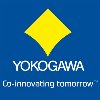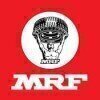Executive Engineer
200+ Executive Engineer Interview Questions and Answers

Asked in TCS

Q. Question 1: What is memory leak? Question 2: What is static variable in C? with program Question 3: What are local variable and global variables? and their default values and program Question 4: What is method...
read moreTechnical interview questions for Executive Engineer position
Memory leak is a situation where a program fails to release memory that is no longer needed
Static variables in C are variables that retain their values between function calls
Local variables are declared inside a function and have a limited scope, while global variables can be accessed from any part of the program
Method overriding is a feature in object-oriented programming where a subclass provides a different imple...read more
Asked in Public Health Engineering Department

Q. What are the main contaminants in safe drinking water?
The main contaminants in safe drinking water include bacteria, viruses, chemicals, heavy metals, and pesticides.
Bacteria and viruses can cause waterborne diseases such as cholera, typhoid, and hepatitis.
Chemicals like chlorine, fluoride, and lead can be present in water due to industrial pollution or outdated plumbing systems.
Heavy metals such as arsenic, mercury, and cadmium can leach into water sources from natural deposits or industrial activities.
Pesticides and herbicides...read more
Executive Engineer Interview Questions and Answers for Freshers

Asked in Deepak Nitrite

Q. What is material balance ? And wrote down the column material balance equation.
Material balance is a fundamental concept in chemical engineering that involves accounting for the flow of materials into and out of a system.
Material balance is used to determine the amount of material present in a system at any given time.
It involves tracking the flow of materials into and out of the system, as well as any chemical reactions that may occur.
The material balance equation is typically written as: Accumulation = Inflow - Outflow + Generation - Consumption.
This ...read more

Asked in Jindal Stainless

Q. What kind of nozzle is used for slab cooling in a continuous casting process?
Submerged entry nozzles (SEN) are commonly used for slab cooling in continuous casting process.
Submerged entry nozzles (SEN) are designed to deliver cooling water directly to the slab surface.
SEN helps in controlling the solidification process and improving the quality of the slab.
Examples of SEN manufacturers include Vesuvius, TATA Steel, and SMS group.

Asked in Torrent Power

Q. What are the various ways to protect a distribution transformer?
Various ways of distribution transformer protection include overcurrent protection, differential protection, and earth fault protection.
Overcurrent protection involves the use of fuses or circuit breakers to protect the transformer from excessive current.
Differential protection compares the current entering and leaving the transformer to detect any internal faults.
Earth fault protection detects any fault between the transformer winding and earth, and trips the circuit to prev...read more

Asked in TCS

Q. Differences between C and Java? Explain me about exception handling? with program Run time exceptions? What is stack?operations and program
Comparison between C and Java, explanation of exception handling and stack operations.
C is a procedural language while Java is object-oriented.
Java has automatic memory management while C requires manual memory management.
Exception handling in Java involves try-catch blocks while C uses error codes.
Runtime exceptions are unchecked exceptions that occur during program execution.
Stack is a data structure that follows the Last In First Out (LIFO) principle.
Stack operations inclu...read more
Executive Engineer Jobs




Asked in Deepak Nitrite

Q. 1) What is chemical engineer ? Can u jusitfy? 2) what is pump ? Can u explain the characteristics curves? 3) what is TR ? Are u able to design the colling tower.
Answers to questions related to chemical engineering and cooling tower design.
Chemical engineering involves the application of chemistry, physics, and mathematics to design and operate chemical processes.
A pump is a mechanical device used to move fluids from one place to another. The characteristics curves show the relationship between flow rate, head, and power consumption.
TR stands for ton of refrigeration and is a unit of power used in refrigeration and air conditioning. D...read more

Asked in Deepak Nitrite

Q. What is heat duty? And design the heat exchanger by Kern's method.
Heat duty is the amount of heat energy required to be transferred in a heat exchanger.
Heat duty is calculated based on the temperature difference between the hot and cold fluids, and the flow rates of the fluids.
Kern's method is a widely used method for designing heat exchangers.
It involves calculating the overall heat transfer coefficient and the heat transfer area required for the given heat duty.
The design process also involves selecting the appropriate type of heat exchan...read more
Share interview questions and help millions of jobseekers 🌟


Asked in Megha Engineering & Infrastructures

Q. Dia of Tunnel, Powder factor, Total length, Used of Grade in Shotcrete & Gantry, Cycle time, Excavation area, About rock bolt installing & grouting, Rock class & supporting sydtem, what is natm technology.....
read moreThe interview question is about various aspects of tunnel execution engineering.
Tunnel diameter is a crucial factor in determining the excavation area and the type of equipment to be used.
Powder factor is the amount of explosive used per unit volume of rock. It affects the fragmentation of the rock and the safety of the workers.
Total length of the tunnel is an important parameter in planning the excavation sequence and the support system.
Shotcrete is used to stabilize the tun...read more

Asked in Jindal Stainless

Q. What is the role of chromium in stainless steel production?
Chromium is added to stainless steel to increase its corrosion resistance and strength.
Chromium forms a passive oxide layer on the surface of stainless steel, which prevents rusting and corrosion.
Chromium also improves the hardenability of stainless steel, making it stronger and more durable.
The amount of chromium added to stainless steel can vary, with higher percentages leading to better corrosion resistance.
For example, 304 stainless steel contains 18% chromium, while 316 ...read more

Asked in Carborundum Universal Limited

Q. How can you identify the criticality of machines? How do you categorise them?
Criticality of machines can be identified based on their impact on production, safety, and downtime. They can be categorized as critical, essential, or non-essential.
Identify machines critical to production processes, where failure can lead to significant downtime or loss of revenue.
Consider machines critical to safety, where failure can pose a risk to employees or the environment.
Categorize machines as critical, essential, or non-essential based on their impact on production...read more

Asked in UltraTech Cement

Q. What is the mix design of concrete?
Mix design of concrete refers to the process of determining the proportions of various ingredients to achieve the desired properties of concrete.
Mix design involves selecting the appropriate type and amount of cement, aggregates, water, and admixtures.
The proportions are determined based on factors such as strength requirements, workability, durability, and environmental conditions.
Various methods like the ACI method, British method, and DOE method can be used for mix design....read more

Asked in Jindal Stainless

Q. What types of external defects occur in the continuous casting process?
External defects in continuous casting process include surface cracks, surface blowholes, and surface segregation.
Surface cracks can occur due to improper cooling or excessive casting speed.
Surface blowholes are caused by trapped gases in the molten metal.
Surface segregation results from uneven distribution of alloying elements.
Other external defects may include surface scabs and surface laps.
Asked in Public Health Engineering Department

Q. How much volume is required for 1000 liters of water?
The volume required for 1000 liters of water is 1000 liters.
The volume required for a certain amount of water is equal to that amount of water.
In this case, 1000 liters of water is required, so the volume required is 1000 liters.

Asked in Jindal Stainless

Q. What are the internal casting defects in continuous casting?
Internal casting defect in continuous casting refers to flaws or imperfections that occur within the casting material during the casting process.
Internal shrinkage: caused by improper cooling or solidification of the casting material, leading to voids or cavities within the material.
Inclusions: foreign particles or impurities that become trapped within the casting material, affecting its structural integrity.
Segregation: uneven distribution of alloying elements or impurities ...read more
Asked in Public Health Engineering Department

Q. What are the units of measurement for Brick Work, Cement Plaster, and RCC?
The unit of Brick Work is in cubic meters (m³), Cement Plaster is in square meters (m²), and RCC (Reinforced Cement Concrete) is in cubic meters (m³).
Brick Work is measured in cubic meters (m³) as it refers to the volume of bricks used in construction.
Cement Plaster is measured in square meters (m²) as it refers to the area covered by the plaster.
RCC is measured in cubic meters (m³) as it refers to the volume of concrete used in reinforced structures.

Asked in Deepak Nitrite

Q. What temperature can be achieved with 4 kg of steam?
The temperature achieved by 4 kg steam depends on the pressure and initial temperature of the steam.
The temperature achieved by 4 kg steam can be calculated using the steam tables.
The pressure and initial temperature of the steam must be known to calculate the final temperature.
The specific heat capacity of water and steam must also be taken into account.
Assuming standard atmospheric pressure, 4 kg of steam at 100°C will have a final temperature of 100°C.
If the steam is at a ...read more

Asked in Jindal Stainless

Q. What is the role of Nickel in stainless steel making?
Nickel is added to stainless steel to improve its corrosion resistance, strength, and durability.
Nickel increases the resistance of stainless steel to corrosion and oxidation
Nickel improves the strength and toughness of stainless steel
Nickel helps maintain the austenitic structure of stainless steel at high temperatures
Nickel is often used in combination with other elements like chromium and molybdenum to enhance the properties of stainless steel

Asked in Deepak Nitrite

Q. What is the boiling point according to the McCabe-Thiele method?
The boiling point is the temperature at which a liquid turns into a gas.
It is a characteristic property of a substance.
It depends on the pressure of the surroundings.
The McCabe-Thiele method is used to determine the boiling point of a mixture.
Water boils at 100 degrees Celsius at standard atmospheric pressure.

Asked in CESC

Q. Star delta connection Distribution transformer Colorcoding of conductor Earthing vs grounding Ques on machine efficiency and stability.
Questions related to electrical engineering concepts such as star delta connection, distribution transformer, color coding of conductor, earthing vs grounding, machine efficiency and stability.
Star delta connection is a method of starting three-phase induction motors.
Distribution transformer is used to step down high voltage to low voltage for distribution purposes.
Color coding of conductor is used to identify the function of each wire in a circuit.
Earthing and grounding are ...read more
Asked in Public Health Engineering Department

Q. What is the function of an over storage tank?
Over storage tanks are used to store excess water or other fluids for future use.
Over storage tanks are typically used in industries, commercial buildings, and residential complexes.
They help in managing water supply during peak demand periods.
These tanks are usually located at a higher elevation to create pressure for distribution.
They can store water from various sources like rainwater harvesting, municipal supply, or borewells.
Over storage tanks often have additional featu...read more

Asked in Yokogawa

Q. Explain the OPC protocol and how to test its communication.
OPC Protocol is a standard for industrial communication. Testing can be done using OPC test clients and servers.
OPC stands for OLE for Process Control
OPC is a standard for communication between industrial devices and software applications
OPC test clients and servers can be used to test communication
OPC UA (Unified Architecture) is the latest version of the protocol
Testing can include checking for data integrity, security, and reliability

Asked in Jindal Stainless

Q. What type of casting Machine in Jsl jajpur,
JSL Jajpur uses various types of casting machines including continuous casting machines and vertical casting machines.
JSL Jajpur uses continuous casting machines for producing long, continuous shapes like rods, tubes, and beams.
They also use vertical casting machines for producing solid shapes like ingots and slabs.
Other types of casting machines used at JSL Jajpur may include horizontal casting machines and centrifugal casting machines.

Asked in Jindal Stainless

Q. What is the meniscus level in continuous casting?
Miniscus level in continuous casting refers to the level of molten metal in the mold during the casting process.
Miniscus level should be maintained at a specific height to ensure proper solidification of the metal.
Maintaining the miniscus level helps control the flow of metal and prevent defects in the final product.
If the miniscus level is too high, it can lead to overflow and if it is too low, it can cause issues with the casting process.
Proper monitoring and adjustment of ...read more

Asked in Jindal Stainless

Q. What are the details regarding your experience with hydraulic and pneumatic systems related to blast furnace operations, including any problems you have solved?
I have extensive experience with hydraulic and pneumatic systems in blast furnace operations, focusing on efficiency and problem-solving.
System Design: Designed hydraulic systems for cooling and material handling in blast furnaces, ensuring optimal performance and safety.
Troubleshooting: Resolved issues with pneumatic conveying systems that were causing material blockages, implementing a new valve design to improve flow.
Maintenance Protocols: Developed maintenance schedules f...read more

Asked in Deepak Nitrite

Q. Are you familiar with the McCabe-Thiele method?
The mcab-theile method is a technique used in electrical engineering for circuit analysis and design.
It is used to convert a transfer function into a rational function
It is commonly used in filter design
It involves finding the partial fraction expansion of the transfer function
It is named after its inventors, J. McAb and E. Theile

Asked in Yokogawa

Q. Explain the Modbus protocol and how it communicates with RTUs.
Modbus is a communication protocol used for transmitting data between devices in industrial environments, often with RTU format.
Modbus is a serial communication protocol developed by Modicon in 1979.
RTU (Remote Terminal Unit) is a binary representation of Modbus messages, ensuring efficient data transmission.
Modbus RTU uses a master/slave architecture where the master initiates requests and slaves respond.
Data is transmitted in frames, with each frame containing a device addr...read more

Asked in Torrent Power

Q. What are the test of concrete and steel and procedure of cube test , which test perform if cube fail. Mainly sefaty releted questions.
The tests for concrete and steel include cube test for concrete and tensile test for steel. If the cube test fails, additional tests like rebound hammer test or ultrasonic pulse velocity test can be performed.
Concrete test: Cube test is performed to determine the compressive strength of concrete. A cube specimen is prepared and subjected to compressive load.
Steel test: Tensile test is conducted to measure the strength and ductility of steel. A steel specimen is subjected to t...read more

Asked in Auro Realty Private Limited

Q. Do you know what BBS and Billings are in construction, and can you explain them?
BBS stands for Bar Bending Schedule and Billings refer to the process of preparing invoices for construction work done.
BBS is a document that lists the number, size, and shape of steel bars required for a construction project.
It helps in estimating the amount of steel required and the cost of the project.
Billings involve preparing invoices for the work done by the contractor or subcontractor.
It includes details such as the quantity of work done, the rate charged, and the tota...read more

Asked in ACC

Q. What techniques should we follow to prevent shrinkage cracks in castings?
To prevent shrinkage cracks in castings, proper gating and risering design, controlling cooling rates, and using suitable alloys are essential.
Design proper gating and risering systems to ensure proper flow of molten metal and minimize shrinkage
Control cooling rates by using insulating materials or controlling the environment
Use suitable alloys with low shrinkage characteristics to minimize the risk of cracks
Implement proper feeding systems to compensate for shrinkage during ...read more
Interview Questions of Similar Designations
Interview Experiences of Popular Companies






Calculate your in-hand salary
Confused about how your in-hand salary is calculated? Enter your annual salary (CTC) and get your in-hand salary


Reviews
Interviews
Salaries
Users










